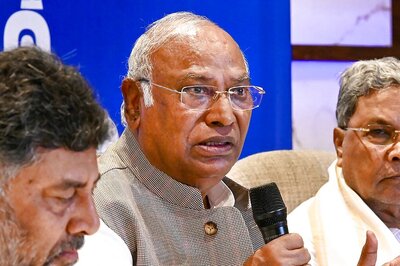
views
BHUBANESWAR: Central Information Commissioner Shailesh Gandhi on Sunday said the procedure for selection of Commissioner for both Central Information Commission (CIC) and State Information Commissions (SICs) is arbitrary, hence needs overhauling. “Even I consider my selection to be arbitrary. There exists no proper process for selection of Commissioners who are chosen rather than selected through a proper procedure,” he said. Gandhi was here to attend the Sixth State- level workshop on the RTI Act. The CIC suggested a two-step procedure for selection of the commissioners. Since the retirement time of RTI commissioner is prefixed, the process of selecting an Information Commissioner should be initiated six months in advance, he told a media conference adding, a search committee should be set up for screening potential candidates for the post. The search committee, Gandhi said, should choose candidates thrice the number of posts to be filled up and names of the shortlisted candidates should be put up in public domain for people to judge the to-be Commissioner. The CIC observed that high pendency before Commissions caused by a faulty selection process would defeat the very purpose of the RTI Act. Every Commissioner should be asked to dispose of a certain number of cases within a fixed time-frame to address the issue. “At CIC, every commissioner will have to clear 3,200 cases per annum. The same yardstick must be applied to State Information Commissioners. No pendency of cases beyond three months should be allowed,” Gandhi said. The checks and balances in democracy would work only when selection of RTI commissioners is done properly, he said. Gandhi was also critical of the organisations which are reluctant to come under the ambit of RTI despite being formed as a result of government investment. He pointed at the bodies which are created through the public-private-partnership (PPP) mode. “When the PPP agencies are asked to share information under RTI, they show signs of reluctance. We had even requested the Planning Commission to amend model agreement in PPP projects but the latter did not consider our proposal,” he said. The Chief Information Commissioner felt that only mounting public pressure and wide reporting in media would bring about the change.




















Comments
0 comment